AREA OF EXPERTISE
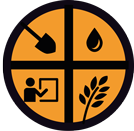
Multisectoral
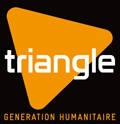
AREA OF EXPERTISE

Multisectoral
FUNDING

Since Sudan's independence in 1956, South Kordofan has been the scene of clashes between the Muslim populations of the north and the mainly Christian or animist populations of the south.
This state has also been weakened by several years of war, which have undermined its development capacities. Bombings by the Sudanese armed forces have affected the majority of civilians. As a result, more than half a million people are believed to have fled the region between 2011 and 2015, and another 250,000 have taken refuge in South Sudan or Ethiopia.
In Sudan, the ongoing economic crisis since 2019 throughout the country has led to the worsening of basic services and intensified humanitarian needs. In South Kordofan, the deterioration of health services is illustrated by shortages of medicines, lack of equipment and the inaccessibility of some health centres, particularly during the rainy season. Water and sanitation infrastructures have also deteriorated, reducing access to drinking water and affecting living conditions and hygiene practices for both local populations and displaced people. In the education sector, a chronic lack of investment for several years, conflicts and natural disasters have led to an alteration of educational infrastructures and services.
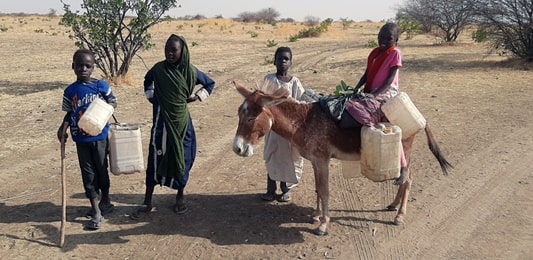
Young children walk 2-3 km in search of clean water in Komsoro village, South Kordofan, Sudan, February 2021 ©Musab Hassan Mohamed
Triangle Génération Humanitaire (TGH) and Première Urgence Internationale (PUI) went to South Kordofan in February 2020 to carry out a needs assessment in the vicinity of El Abassiya, which gave rise to this project, set up in consortium by the two NGOs.
TGH teams are in charge of the Water, Hygiene and Sanitation (WASH) and Education components. In the villages of Tabassa, Daduri, Banat al Murib and Komsoro, TGH is rehabilitating water points, training maintenance workers for these points and setting up hygiene awareness campaigns. Concerning WASH intervention, TGH teams are also responsible for the construction of latrines as well as the setting up of structures for water storage and hand washing points in schools and health facilities. To ensure a good long-term management of water points, TGH organises training for the Water User Committees (WUCs).
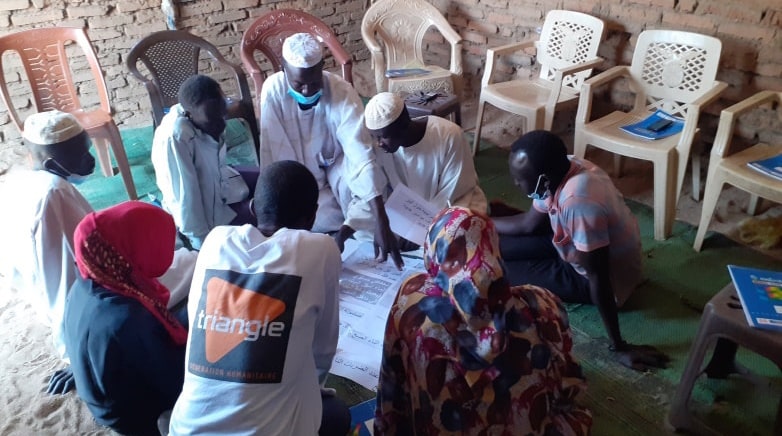
Discussion with a WUC facilitated by the TGH WASH supervisor, Al Daduri, South Kordofan, Sudan. March 2021 © Alaa-WASH/TGH Supervisor.
The existing WUCs are trained in the maintenance and repair of water points. Where there is no WUC, TGH assists residents to create one. Hand-washing points are also built or rehabilitated, to enable the inhabitants to fight against the COVID-19 pandemic and other waterborne diseases.
In the field of education, TGH is rehabilitating and building school infrastructures. The rehabilitated classrooms are equipped with benches, desks and cupboards. After a needs assessment, school kits are made up and distributed to both pupils and teachers. Finally, TGH teams provide teaching training for school teachers. The training courses offered correspond to the needs identified by TGH in collaboration with the Sudanese Ministry of Education. Each training course (teaching techniques, mathematics, languages, etc.) includes a module on child rights and protection and the prevention of GBV.
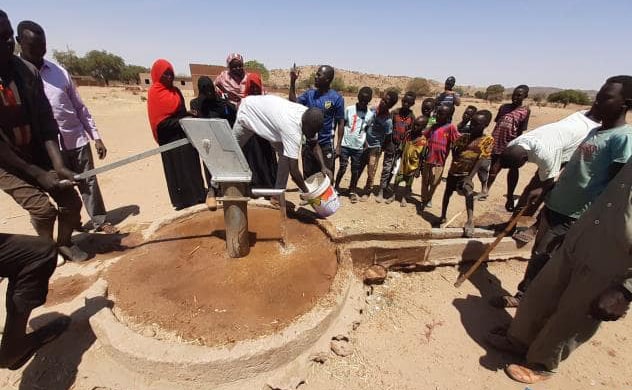
School’s hand pump just after the reparation, Al Daduri, South Kordofan, Sudan. March 2021 © Alaa-WASH Supervisor/TGH
PUI teams are in charge of health-related activities and therefore proceed to reinforce the capabilities of health staff and community relays while carrying out care, detection and patient guidance activities. In addition, the fight against gender-based violence (GBV) is included in this project. In this respect, PUI aims to strengthen the system of care for victims of GBV by directing them to existing actors and by reinforcing the capacities of the latter (through training in the medical accompaniment of victims for example).
Overall, TGH and PUI aim to not only sustain the provision of essential services in the health, WASH and education sectors, but also to strengthen the management of these services in the long term.